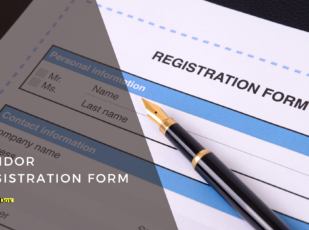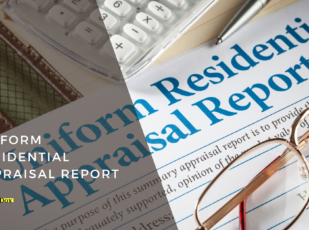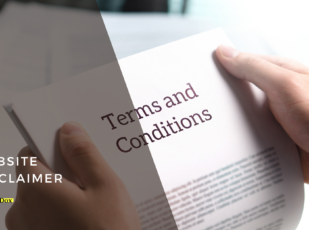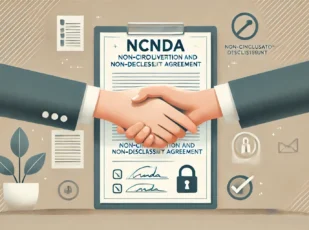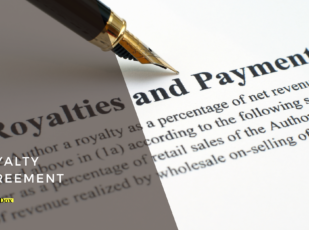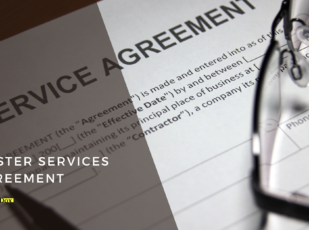
Sale Agreement of Business Template
14 Downloads
Commercial
February 17, 2025
Sayantani Dutta
Buying or selling a business is a complicated process. There are so many variables that affect the final purchase and just as many considerations and nuances that need to be ironed out. Over time, the process can easily take months and more than the originally stipulated purchase price! That is where the Sale Agreement of Business comes into the picture.
This business sale/purchase agreement is a vital tool in this process. It outlines the terms of the sale to ensure clarity and protect the interests of all parties involved in the transaction. A legal basis is required to enforce the terms of the sale. And that is why this legal document covers all bases—assets included, liabilities, terms of payment, and other conditions related to the sale of a business, such as how customer lists are treated and who will own which intellectual property or a piece of real estate.
The objective of the Sale Agreement of Business is to streamline this transfer process, minimize misunderstandings, and create a transparent and efficient environment for the transaction. Note that this is different from an asset purchase agreement, which only concerns itself with the sale of the assets of the business under the governing law, not the entire business itself, such as an LLC. The covenants and warranties in a sales contract for the whole company are much more stringent, comprehensive, and legally robust.
In this article, we are going to talk about the Sale Agreement of Business. We will cover its importance and the risks of choosing an inadequate template for drafting your final agreement—and the severe repercussions it could have. We will also tell you about the most common components one would find in a business sale agreement before introducing you to FreshDox.com’s very own template, which can be just the right starting point for you!
Importance of Business Purchase Agreement
Alright, let’s talk about the many benefits and the core importance of having a comprehensive, legally sound, and professionally drafted business sale/purchase agreement. First of all, you need to formalize any business transaction properly. This is important to ensure understanding between the buyer and the seller and put them in a binding contract. This agreement helps do precisely that—and when drafted comprehensively, it can do it really well.
For sellers, the agreement specifies the exact nature of what is being sold, including inventory, intellectual properties, and customer lists. In doing so, the agreement secures the terms of compensation. On the other hand, for the buyers, this document lays out the conditions under which they assume ownership. In this way, the agreement helps ensure that the buyer is receiving what they have paid for.
So, if you need a clear framework for negotiating terms and can serve as a reference in resolving any disputes that might arise after the sale.
Ultimately, more than a formal document, it is the backbone of a successful business transfer. Whether you are the buyer or the seller, having a well-structured agreement is crucial to ensuring a smooth transition, protecting your interests, and avoiding costly disputes down the road.
A solid agreement helps establish clear terms and conditions. After all, selling or acquiring a business is not a handshake deal—it involves multiple moving parts, from assets and liabilities to employees and intellectual property. Everything should be set in black and white, and this agreement aims to do that.
Of course, the agreement also ensures proper legal protection for both parties. A handshake or verbal agreement would not hold up in court if something goes wrong. A business purchase agreement provides legal enforceability, ensuring that both the buyer and the seller have clear rights and responsibilities.
Furthermore, the Sale Agreement of Business also helps outline assets and liabilities transfers, which can be quite complex. Businesses are more than just their physical assets—they include intellectual property, contracts, and goodwill that must be transferred correctly. A well-drafted agreement will detail which tangible and intangible assets are part of the deal, handling of outstanding liabilities or pending legal matters, and employee agreements and vendor contracts.
During this transition, intellectual property needs to be handled carefully, as it is often one of the most valuable assets in a business. Trademarks, copyrights, proprietary processes, or trade secrets are what allow a business to have a competitive edge, after all. The agreement also ensures that these IPs are transferred rightfully with proper non-compete and confidentiality clauses preventing any misuse.
Ultimately, everything you can think of—from clarity in terms, legal protections, and liability transfers to protecting IPs, ensuring regulatory compliance, defining contingencies, and setting down clauses for various types of encumbrances, dispute resolution mechanisms, non-competition, non-solicitation, asset allocation, and indemnification for partners—the Sale Agreement of Business offers a way to clarify the terms and conditions about it.
Risks of Inadequate Business Sale Agreements
It is such an important piece of document, we just established that. Clearly, it goes without saying that you should not have an inadequate one. Inadequacy comes in two forms:
- You do not have an agreement at all. This is a little hard to visualize but it does happen. People often rely on other types of contracts or agreements, not a business sale/purchase agreement, and a lot of verbal yes-no, to sell businesses. Even if it is a small business, this is not recommended at all for obvious reasons. There is no assurance of enforceability, for once.
- The second one is more common—you choose a free, generic template to draft your final agreement. It has its own problems. There is no worse shock than learning that you failed to cover a niche, exploitable clause in the document, which made the transaction vulnerable. At least with no agreement at all, there is no scope for such a shock.
So, needless to say, conducting a business sale without a comprehensive Sale Agreement of Business Template can expose both parties to significant risks.
Without a clear contract, critical aspects such as debt assumption, asset valuation, and responsibility for existing contracts can become areas of contention. This may lead to legal disputes, which can be costly and time-consuming. Additionally, the absence of a formal agreement might result in the omission of necessary legal clauses that protect intellectual property and confidential information. This, of course, is not ideal and can harm both parties post-transaction.
This entire agreement acts as a business contract between two parties that protects them both. Each business entity in a transaction wants to protect its own rights and interests. For that reason, the agreement needs to do its due diligence in comprehensiveness and accuracy, so nothing is left to chance, or, worse yet, guesswork and ambiguities.
The headings or sections in a Sale Agreement of Business offer a detailed overview of the transaction. For example, when a business is getting acquired, it might want to liquidate some of its assets. To that end, the lump sum amount that is paid out to the business might not be for the entirety of the business. This agreement will specify what are the excluded assets in this case.
Like that, there are many conditions, liens, and considerations such as a non-compete clause in this sale or purchase of business agreement, regardless of what type of business it is. If either party tries to violate the terms, it is this agreement that will act as legal advice for what is supposed to be done now.
Business Bill of Sale: Key Components
A well-drafted business sale agreement needs to be thorough, covering all aspects of the transaction to ensure clarity, transparency, and enforceability. Without addressing the key components properly, the agreement might fail to hold up in case of disagreements or legal scrutiny.
- One of the most important aspects of the agreement is the clear identification of the parties involved. This includes the full legal names, addresses, and contact details of both the buyer and the seller. Precise identification ensures there is no ambiguity about who is responsible for fulfilling the obligations outlined in the contract. It also serves as a point of reference for legal purposes, should any disputes arise down the line.
- Another vital component is the detailed description of the business being sold. This section should outline exactly what is being transferred, including tangible assets such as equipment, inventory, and property, as well as intangible assets like intellectual property, customer lists, goodwill, and any proprietary data. The inclusion of this information helps avoid confusion and ensures that both parties are fully aware of what is included in the transaction and what is not.
- The agreement must also specify the purchase price and payment terms. Whether the transaction involves a lump sum payment, installments, or performance-based payouts, the details must be explicitly outlined. This section should also cover any contingencies related to the payment structure, such as financing approvals, down payment requirements, and penalties for missed deadlines. Clear financial terms help in setting expectations and preventing disputes related to payment obligations.
- A well-structured Sale Agreement of Business will include provisions regarding liabilities and debts. It should state whether the buyer will assume any existing liabilities such as outstanding loans, pending legal matters, or unpaid taxes, or if the seller is responsible for settling these before the transfer. This section is crucial in ensuring that the buyer doesn’t inherit unforeseen financial burdens that could impact the profitability of the business post-sale.
- Ownership transfer details are another critical inclusion. The agreement should specify the exact date and process by which ownership will be transferred, including the handover of necessary documents such as business licenses, operational records, tax filings, and compliance certifications. Properly defining the ownership transition ensures a smooth handover and prevents any operational disruptions, and it is more than just mentioning the closing date.
- It is also essential to address employee and contract obligations within the agreement. Many businesses operate under existing contracts with vendors, clients, and service providers, and the agreement should clarify how these contracts will be handled post-sale. Similarly, employee arrangements such as salaries, benefits, and job security need to be clearly outlined to avoid legal complications and disruptions in workforce operations.
- Confidentiality and non-compete clauses are often included in business sale agreements to protect sensitive business information. The seller, having been deeply involved in the business, possesses insider knowledge that could be detrimental if shared with competitors or used to establish a competing business. A well-defined confidentiality clause ensures that proprietary information, trade secrets, and customer data remain secure, while a non-compete clause prevents the seller from entering the same market for a specified period.
- The inclusion of representations and warranties is crucial to establish trust between the parties. These clauses provide assurances that the business is being sold in good faith, free from hidden liabilities, and that all financial records are accurate and truthful. Should any misrepresentation be discovered post-sale, this section serves as a basis for legal recourse.
- Finally, the agreement should incorporate a dispute resolution mechanism to address any conflicts that may arise post-sale. Whether through mediation, arbitration, or litigation, defining a clear method for resolving disputes ensures that both parties have a structured way to handle disagreements without unnecessary delays or costs.
FreshDox.com’s Business Purchase Agreement Template
Here at FreshDox.com, we have just the thing you need! Our professionally designed Sale Agreement of Business Template is the right starting point—it can help assist individuals and companies in the complications often involved with buying or selling a business. Our template is created by legal experts who specialize in commercial transactions. It provides a detailed, customizable framework that addresses the critical components of business sales.
And when you subscribe to FreshDox.com, you gain access not only to our Sale Agreement of Business Template, but scores of legal and business-related documents, all designed professionally by experts! Furthermore, we also have the provision for a 14-day trial period, which means you can test drive both of our membership plans—Basic and Premium. Basic Members can download up to three document templates a month whereas Premium Members have unlimited access.
Whether you are a business broker, legal professional, or entrepreneur—we have the templates to cover all bases and all of your business requirements!
Using FreshDox.com’s Sale Agreement of Business Template can significantly ease the process of transferring business ownership, ensuring all legal bases are covered and helping parties avoid common pitfalls in business transactions. Sign up today to secure a professional, reliable, and effective agreement that supports the successful sale of your business.
Popular searches:
Related Templates
Discover more templates that align with your needs and preferences.

Ready to Sign Up?
Sign up for FreshDox.com’s 7-day trial and discover why so many individuals and businesses trust us for their legal document template needs.
- Cancel any time
- 7-day free trial
- From 300+ Customer Reviews



